Lecturers
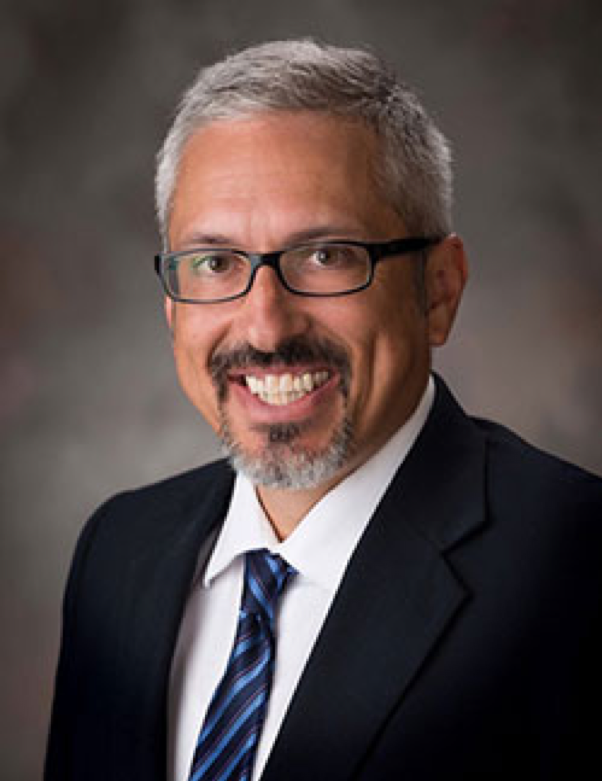 Science, Technology, and Faith
Science, Technology, and Faith
Dr. Aaron Dominguez, Provost of the Catholic University of America, Wednesday, October 30, 2019
7:00PM, South Ballroom, Memorial Union
Aaron Dominguez is the Provost of the Catholic University of America, having previously served as the Dean of the School of Arts and Sciences between 2016 and 2019 and ordinary professor of physics. Prior to joining CUA, he was a professor of physics and astronomy at the University of Nebraska-Lincoln (UNL). The author of more than 1,100 papers in experimental high energy physics and instrumentation, Dominguez, whose area of research is experimental high energy physics, has a strong history of research and grant activity, including a National Science Foundation (NSF) CAREER grant, continuous funding for the past 14 years, and a recent cooperative agreement with the NSF for $11.5 million. As part of this award, Dr. Dominguez is deputy project leader of a team that includes researchers from nine universities in the U.S. efforts to improve the silicon pixel detector, hadron calorimeter and trigger in preparation for high-luminosity runs of the LHC in coming years. He was also involved in the construction of the next generation of particle detectors for the group’s Compact Muon Solenoid experiment at the Large Hadron Collider operated by the CERN Laboratory in Geneva, Switzerland.
Cosponsored By: Sigma Xi, the College of Liberal Arts and Sciences, the Department of Philosophy and Religious Studies, and the ISU Lecture Program.
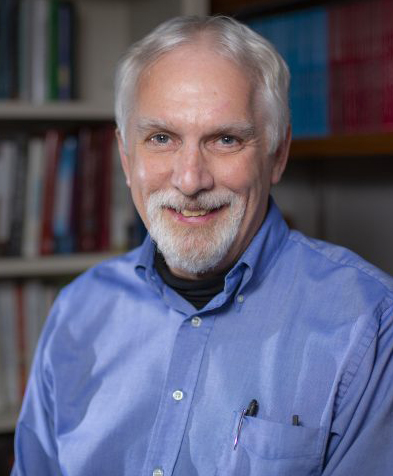 Rapid Global Warming and Human Violence
Rapid Global Warming and Human Violence
Dr. Craig Anderson, Department of Psychology, Iowa State University, Thursday, March 14, 2019
7:00PM, Pioneer Room, Memorial Union
Rapid global warming is already having devastating economic, political, and social consequences worldwide. In this presentation, Iowa State Distinguished Professor of psychology Craig Anderson will outline three very different ways global warming increases the risk of human violence: the direct effect of heat-induced irritability on aggression and violence; known pre-and post-natal risk factors for creating violence-prone adults; and the effects of ecological disasters on migration and the consequent political instability, intergroup violence, and war. Anderson will also discuss the implications for action on climate change and on preparing for the challenges of eco-migration.
Cosponsored By: Sigma Xi, Committee on Lectures (funded by Student Government).
2018
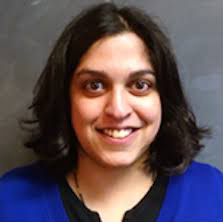
Rewriting DNA: Genome Editing in the CRISPR Era
Dr. Dipali Sashital, Roy J. Carver Department of Biochemistry, Biophysics, and Molecular Biology, Iowa State University, Thursday, November 29, 2018
7:00PM, Sun Room, Memorial Union
Genomes are the blueprints for our cells, containing the information needed to grow and sustain life. The recent discovery of CRISPR tools have enabled scientists to precisely alter DNA through a process called gene editing. We now have the power to redesign cellular blueprints in all forms of life, including humans, opening the door for new disease treatments, improved food supplies, and new sources of energy. Dipali Sashital is an expert in CRISPR technology, and research in her lab focuses on understanding and improving these tools. Dr. Sashital will share the story of the development of this groundbreaking technology, from its humble beginnings as a bacterial immune system to the incredible promise its many applications hold.
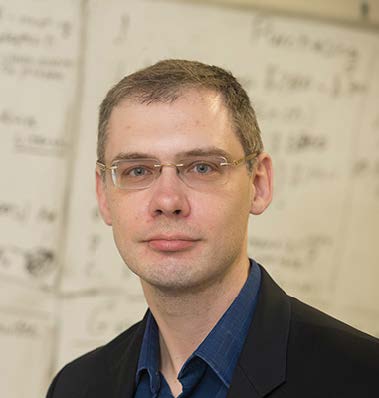 How Nanoparticles Are Used in Consumer Products: Should We Be Concerned?
How Nanoparticles Are Used in Consumer Products: Should We Be Concerned?
Alexander Orlov, State University of New York, Stony Brook
Thursday, February 15, 2018
7:00PM, Campanile Room, Memorial Union
Alexander Orlov is an associate professor of materials science and engineering at State University of New York, Stony Brook, and a faculty member with the Consortium for Interdisciplinary Environmental Research. His research focuses on the design of novel nanomaterials as well as understanding the hazards associated with nanoparticles so regulators can make informed decisions about the consumer and environmental safety
of products using new technologies. Orlov’s many honors and awards include the U.S. National Science Foundation CAREER Award and the U.K. National Endowment for Science Technology and Arts CRUCIBLE award.
2017
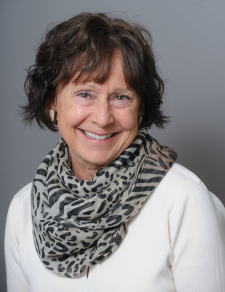 Science for All? Diversity in Science in a Global Economy
Science for All? Diversity in Science in a Global Economy
Sandra L. Hanson, Catholic University
Thursday, November 30
6:30PM, Great Hall, Memorial Union
Sandra L. Hanson is a professor of sociology at Catholic University whose work has focused on gender, race and ethnicity in the sciences. She is the author of two books on the subject, Swimming Against the Tide: African American Girls in Science Education and Lost Talent: Women in the Sciences. Hanson received a Fulbright award for teaching and research on gender in Eastern Europe at the Jagiellonian University in Krakow, Poland. Her second Fulbright award was for teaching and research on gender and science in an international context at the Global and European Studies Institute, Leipzig University, Germany.
2016
 The Geology and Geography of Floods
The Geology and Geography of Floods
Jim O’Connor, US Geological Survey
Monday, October 24
8:00PM, Sun Room, Memorial Union
Jim O’Connor is a research geologist at the U.S. Geological Survey in Portland, Oregon, who studies landscape evolution related to rivers and floods. He is particularly interested in the role of floods in shaping our historic and present-day physical and cultural landscapes. A fellow of the Geological Society of America, O’Connor has done extensive work on Ice Age floods that transformed the Pacific Northwest. O’Connor completed his undergraduate work in geological science at University of Washington and earned MS and PhD degrees at the University of Arizona. He has worked at the U.S. Geological Survey since 1991.
 How People Learn and the Creativity of Science
How People Learn and the Creativity of Science
Karen Oates, Professor of Biochemistry, Worcester Polytechnic Institute
Thursday, March 24
7:00PM, Sun Room, Memorial Union
What do we know about boosting creativity, deep learning and motivation that brings both a passion and the innovative spirit into science? Uncovering something new takes a confluence of factors coming together which includes deep content knowledge, the ability to see what others may not along with a willingness to see problems through diverse perspectives. We explore landmark research on how people learn and connect it to the emerging science of creativity to boost innovation and create the fertile ground to grow and support scientific advancements.
Dr. Karen Kashmanian Oates is a Professor of Biochemistry and the Dean of Arts & Sciences at Worcester Polytechnic Institute. Dr. Oates received her B.S. in Biology from Rochester Institute of Technology and her Ph.D. in Biochemistry from The George Washington University. She then served as a Visiting Research Fellow at the National Institutes of Health, Oncology and Hematology division. Dr. Oates joined WPI from the National Science Foundation, where she had served as a deputy director of the Division of Undergraduate Education charged with supporting innovative programs to strengthen undergraduate education and help revitalize American entrepreneurship and competitiveness. She began her academic career at George Mason University, where, as associate dean for the new College of Integrated and Interdisciplinary Studies, she helped create George Mason’s New American College environment. She later served as inaugural provost for the Harrisburg University of Science and Technology, where she established the National Center for Science and Civic Engagement and helped secure NSF funds for Science Education for New Civic Engagement and Responsibilities, which works to improve undergraduate STEM education by connecting learning to critical civic questions. Among the honors she has received are the Bruce Albert’s Award, presented by American Society for Cell Biology for excellence in science education reform, and the Distinguished Public Service Award, the highest civilian honor presented by the City of Harrisburg, Pennsylvania. In 2012 she was inducted as a fellow into the prestigious American Association for the Advancement as a Science Education fellow. As the inaugural holder of the Peterson Family Deanship of Arts & Sciences, she oversees seven academic departments (Biology, Chemistry, Physics, Mathematics, Computer Science, Humanities & Arts and Social Sciences & Policy Studies), as well as several interdisciplinary programs including Environmental and Sustainability studies, Robotics and Interactive Media and Game Development.
2015
 The Evolution of Goodness, Justice and Empathy
The Evolution of Goodness, Justice and Empathy
Lee Dugatkin Professor of Biology, University of Louisville
Thursday, October 22
7:00PM, Sun Room, Memorial Union
We humans often display acts of kindness and generosity. As it turns out, nonhumans are also good to one another, sacrificing to help those around them. But why? Why do both humans and animals show such altruistic, self-sacrificial behavior? Scientists and philosophers have long pondered these questions. In a fast-moving, action packed talk, I will bring us up to date on what we know and what we don’t know about the roots of goodness by focusing on both the fascinating history of this subject, which includes true stories that are the stuff of movies, and the latest, cutting edge research in the field of evolution and behavior.
Dr. Dugatkin is Professor of Biology at The University of Louisville. His main areas of research interest are: 1) the evolution of social behavior, and 2) the history of science. He has spoken at over eighty universities around the world, including Harvard University, Oxford University, The University of Copenhagen, Taiwan National University, and The London School of Economics. He has also presented his work in public venues such as The Smithsonian Institute, The American Museum of Natural History, and The Museum of Colonial Williamsburg. Dr. Dugatkin is the author of over 150 technical articles on behavioral evolution, and is a contributing author to Scientific American, and The New Scientist. He has published three books on the evolution of cooperation, and a number of popular books, including Mr. Jefferson and the Giant Moose. He is the author of two textbooks: Principles of Animal Behavior and Evolution (with Carl Bergstrom). – See more at: https://www.sigmaxi.org/programs/lectureships/2015-2016-lecturers#sthash.Wp7GpdcD.dpuf
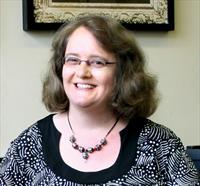 Mathematics of Crime
Mathematics of Crime
Andrea Bertozzi, Professor of Mathematics and Betsy Wood Knapp Chair for Innovation and Creativity, UCLA
Thursday, March 26
7:00PM, Sun Room, Memorial Union
There is an extensive applied mathematics literature developed for problems in the biological and physical sciences. Our understanding of social science problems from a mathematical standpoint is less developed, but also presents some very interesting problems, especially for young researchers. This lecture uses crime as a case study for using applied mathematical techniques in a social science application and covers a variety of mathematical methods that are applicable to such problems. We will review recent work on agent based models, methods in linear and nonlinear partial differential equations, variational methods for inverse problems and statistical point process models. From an application standpoint we will look at problems in residential burglaries and gang crimes. Examples will consider both “bottom up” and “top down” approaches to understanding the mathematics of crime, and how the two approaches could converge to a unifying theory.
Andrea Bertozzi is the Betsy Wood Knapp Chair for Innovation and Creativity and a professor of mathematics at the University of California at Los Angeles. She is an applied mathematician whose work includes geometric methods for image processing, crime modeling and analysis, and swarming dynamics. Her expertise is in nonlinear partial differential equations and fluid dynamics. Bertozzi completed all her degrees in mathematics at Princeton. She was an NSF Postdoctoral Fellow at the University of Chicago, the Maria Geoppert-Mayer Distinguished Scholar at Argonne National Laboratory, and was on the faculty at Duke University prior to UCLA. She was elected to the American Academy of Arts and Sciences in 2010.
2014
Arlen Chase
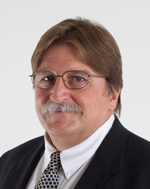 How Technology is Changing the Archaeology of the Ancient Maya
How Technology is Changing the Archaeology of the Ancient Maya
Pegasus Professor and Chair of Anthropology, University of Central Florida
Thursday, October 9, 2014
7:00PM Sun Room, Memorial Union (note change of location)
Arlen F. Chase is a Pegasus professor and the chair of the anthropology department at the University of Central Florida. He currently co-directs excavations at Caracol, Belize, the largest recorded Classic Period (A.D. 250-900) Maya center; before that, he was involved in research projects at Santa Rita Corozal, Belize and at Tayasal, Guatemala. His research focuses on archaeological method and theory as applied to the Maya area with particular emphasis on ancient urbanism, ceramic analysis, landscape archaeology, and the complex relationship that exists between Maya hieroglyphic writing and archaeological data. Most recently, he has pioneered efforts in applying laser-based remote sensing, or LiDAR, to the ancient Maya landscape. He has authored over 125 peer-reviewed articles and book chapters as well as multiple books. Further information and PDFs of his writings may be found at www.caracol.org.
2013
 The Science of Speed: Faster, Stronger and Safer
The Science of Speed: Faster, Stronger and Safer
Diandra Leslie-Pelecky
Professor of Physics, West Virginia University
Thursday, October 24, 2013
8:00PM Sun Room, Memorial Union
A group of racecars piloted by the best drivers in NASCAR enter Turn 4 at Charlotte Motor Speedway going almost 200 mph. Without warning, one of the cars wiggles, and then slams into the wall. None of the cars touched, there were no engine failures, no flat tires, so what happened? This is the question that took Professor Diandra Leslie-Pelecky from the lab to the racetrack, speeding around Texas Motor Speedway (she calls it ‘research’) in an effort to understand why going fast is so hard. In her quest for understanding the science of speed, she met the mechanical engineers, aerodynamicists, chemical engineers, and physicists who have become critical participants in the high-stakes world of motorsports. Even drivers without engineering degrees develop an intuitive understanding of physics, “you don’t keep your job long without a working knowledge of Newton’s Laws of Motion.” What she learned is that you can’t win races without getting the math and science right. Here’s where all the science you learned in high school (and wondered when you’d ever use) hits the road. If you’ve ever thought about knocking Lewis Hamilton or Jeff Gordon out of their ride, you might want to hear this talk before you make your move: without knowing the science, you’re more likely to see the yellow flag than the checkered one.
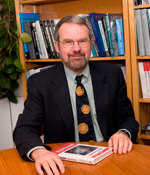 Demons and Butterflies—Weather predictions and predictability theory
Demons and Butterflies—Weather predictions and predictability theory
Richard Anthes
President, University Corporation for Atmospheric Research
Thursday, March 28, 2013
8:00PM Sun Room, Memorial Union
The concept of predictability of complex systems has fascinated scientists for centuries. In the 17th century Gottfried Leibnitz speculated that everything proceeds mathematically, and so someone who had sufficient understanding and could take into account everything, “would be a prophet and see the future in the present as in a mirror.” About a hundred years later the Marquis de Laplace dreamed of an intelligent being (an intellect, later dubbed Laplace’s Demon) who knew the positions and velocities of every single atom and used Newton’s equations of motion to predict the future of the entire universe. In 1972 Edward Lorenz gave a talk on atmospheric predictability with the title “Does the flap of a butterfly’s wing in Brazil set off a tornado in Texas?” This rhetorical and provocative question has intrigued scientists and the public ever since, and “the butterfly effect” has come to mean chaos and lack of predictability of chaotic nonlinear systems. Examples of successful numerical weather forecasts suggest that in some cases there is useful predictability of high-impact weather systems far beyond what classical predictability theory might suggest. In this talk I show examples that provide optimism for continuing to increase the forecast lead time of significant weather and indicate how this progress can continue.
2012
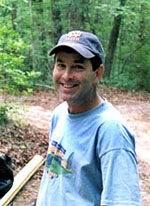 The Ice Age Dispersal of Humans to the Americas: Do Stones, Bones and Genes Tell the Same Story?
The Ice Age Dispersal of Humans to the Americas: Do Stones, Bones and Genes Tell the Same Story?
Ted Goebel
Professor of Anthropology, Texas A&M University
Thursday, October 25, 2012
8:00PM Sun Room, Memorial Union
Scientists from four disciplines—molecular genetics, archaeology, human paleontology, and geochronology/geomorphology—are searching for the origins of the first Americans in northeast Asia and Beringia, investigating the process of human dispersal from the Old World to the New. In this lecture, I draw on data from each of these disciplines to address four related questions: (1) when did modern humans appear in greater northeast Asia, (2) what was the northeast Asian “source” of the first Americans, (3) when did ancestors of the first Americans disperse from northeast Asia to Beringia, and (4) how did the dispersal process unfold? In short, modern ancestors of the first Americans appeared in northeast Asia before 30 ka, but they did not disperse from a core area in the Baikal region of Siberia until after the last glacial maximum, <20 ka. They colonized Beringia rapidly as glacial climates ameliorated, and soon significant genetic and cultural variability emerged. Before long, between 16 and 13 ka, these populations dispersed further into the Americas, following multiple paths. Telling of this story is unfinished, and results of new research will potentially lead to a new ending. Most important will be results of ancient DNA analyses of the earliest modern northeast Asians and Alaskans, continued exploration of the Bering Land Bridge area for early archaeological sites—terrestrial and submerged, and paleogeographic studies of deglaciation in western Canada.
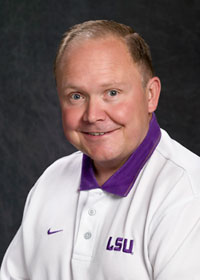 The Impact of Retrotransposons on Human Genome Evolution
The Impact of Retrotransposons on Human Genome Evolution
Mark Batzer
Professor of Biological Sciences, Louisiana State University
Thursday, March 8, 2012
8:00PM Gallery, Memorial Union
Their ability to move within genomes gives transposable elements an intrinsic propensity to affect genome evolution. Non-long terminal repeat (LTR) retrotransposons— including LINE-1, Alu and SVA elements — have proliferated over the past 65 million years of primate evolution and now account for approximately one-half of the human genome. The lecture will focus on this major class of elements and discuss the many ways that they affect the human genome: from generating insertion mutations and genomic instability to altering gene expression and contributing to genetic innovation. Increasingly detailed analyses of human and other primate genomes are revealing the scale and complexity of the past and current contributions of non-LTR retrotransposons to genomic change in the primate lineage.
2011
 Neandertals and Us
Neandertals and Us
David Frayer
Professor of Anthropology, University of Kansas
Thursday, 13 October 2011
8:00 pm, Sun Room, Memorial Union
David Frayer is a Professor in the Department of Anthropology, University of Kansas, Lawrence. With degrees from Miami University (BA, 1969), Case Western Reserve University (MA, 1971) and the University of Michigan (PhD, 1976) he has focused in European paleoanthropology and dental anthropology. His early research involved the internal dynamics and long-term evolutionary trends in European Upper Paleolithic and Mesolithic populations. For the past two decades he has extensively published (independently and with a variety of American and European scholars) on the relationship between Neandertal and subsequent European populations. Ongoing research concerns various projects about the Croatian Neandertal site of Krapina, the dental anthropology of an early, preceramic Neolithic site of Merhgarh in Pakistan, early Homo from Eritrea and the so- called ‘hobbit” from Flores, Indonesia. He has published widely in national and international books and journals on topics ranging from Neandertal toothpick use to evidence for human massacres in the German Mesolithic to evidence for language origins.
 DNA at the Dinnertable: The Global Politics of Genetically Modified Food
DNA at the Dinnertable: The Global Politics of Genetically Modified Food
Lisa Weasel
Associate Professor of Biology, Portland State University
Thursday, 24 February 2011
8:00 pm, Sun Room, Memorial Union
Lisa Weasel is the author of Food Fray: Inside the Controversy over Genetically Modified Food. She is interested in the social dimensions of science and technology, particularly how issues of ethics, equity and politics relate to the life sciences. Her work encompasses a broad range of interdisciplinary topics, from feminist science studies and gender equity, to public engagement with science, to the relationship between biotechnology and sustainable agriculture and food security in the developing world. Weasel earned a PhD in molecular biology from the University of Cambridge. She is an associate professor of biology at Portland State University.
2010
Bette Otto-Bliesner
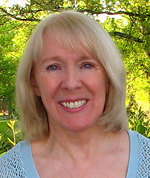 Climate Change: What Could Happen and What Can Earth’s Past Tell Us?
Climate Change: What Could Happen and What Can Earth’s Past Tell Us?
Senior Scientist, National Center for Atmospheric Research
Thursday, 21 October 2010
8:00 pm, Sun Room, Memorial Union
Bette Otto-Bliesner is a senior scientist at the National Center for Atmospheric Research in Boulder, Colorado. She uses computer-based models of Earth’s climate to investigate past climate change and climate variability across a wide range of time scales. She is particularly interested in the naturally forced climate change of the glacial-interglacial cycles of the last million years. Otto-Bliesner was a lead author on the Fourth Assessment Report generated by the Intergovernmental Panel on Climate Change, which shared the Nobel Peace Prize with Al Gore in 2007. She received her PhD in meteorology from the University of Wisconsin, Madison.
 The Role of Engineers in Managing Risks from Natural Hazards
The Role of Engineers in Managing Risks from Natural Hazards
Lawrence Papay
CEO and Principal, PQR, LLC
Thursday, 25 February 2010
8:00 pm, Sun Room, Memorial Union
Lawrence Papay is the National Academy of Engineering Sigma Xi Lecturer, with a distinguished career in the energy sector, including business management, technology integration, nuclear and electric power, and system planning. He is CEO and Principal of PQR, a management consulting firm for a variety of clients in electric power and other energy areas. His previous positions include Sector Vice President for SAIC’s Integrated Solutions Sector; Senior Vice President and General Manager of Bechtel Technology & Consulting; and Senior Vice President at Southern California Edison. Papay has served on the Department of Energy’s Energy Research Advisory Board, the Department of Homeland Security’s Science and Technology Advisory Committee as well as the President’s Council of Advisors on Science and Technology. He holds an Sc.D. in nuclear engineering from MIT.
2009
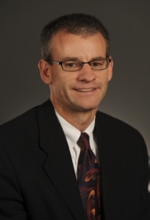 The Role of Engineers in Managing Risks from Natural Hazards
The Role of Engineers in Managing Risks from Natural Hazards
Robert Gilbert
Hudson Matlock Professor of Civil, Architectural and Environmental Engineering
University of Texas at Austin
Tuesday, 13 Oct 2009
8:00 pm, Alliant Energy-Lee Liu Auditorium, Howe Hall
Robert Gilbert is the Hudson Matlock Professor in Civil, Architectural and Environmental Engineering at the University of Texas at Austin. His expertise is the assessment, evaluation and management of risk in civil engineering, including building foundations, pipelines, dams and levees, and landfills. His recent research has focused on analyzing the performance of offshore platforms and pipelines in hurricanes; managing earthquake and flooding risks for the Sacramento-San Joaquin Delta in California; and performing a forensic analysis of the New Orleans levee failures. Gilbert earned a Ph.D. in civil engineering from the University of Illinois at Urbana-Champaign and practiced with Golder Associates Inc. as a geotechnical engineer.
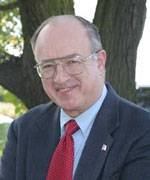 Sustainable Industry in a Changing Society
Sustainable Industry in a Changing Society
John Carberry
Director, Environmental Technology, Dupont
National Academy of Sciences
Thursday, February 26, 2009
8:00 p.m., Pioneer Room, Memorial Union
Changing Expectations of Society and Government: Over the past 40 years, the expectations of the public, regulators, and the government about the impact of industry on the environment has changed from almost laissez-faire to a strong and dynamic demand for “sustainability”. This trend was first manifest in a large array of laws and regulations that can be particularly expensive unless addressed proactively and, during the last decade has been increasingly reflected in the marketplace. This presentation seeks to review the major environmental issues and trends over that period along with methods to anticipate or otherwise prepare for these rising expectations along with examples of creative responses to these issues. The concepts of “green manufacturing” and “sustainable businesses” will be outlined in the context of the business case for meeting those expectations.
2008
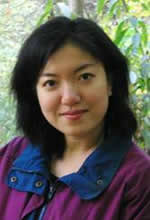 Environmental Impacts of Ethanol Production: The Good, the Bad and the Alternatives
Environmental Impacts of Ethanol Production: The Good, the Bad and the Alternatives
Felicia Wu
University of Pittsburgh &
The Society for Risk Analysis
Thursday, October 16, 2008
8:00 p.m., Gallery, Memorial Union
Global improvement in living standards has meant a vastly increased demand for energy. Yet we face a finite and vulnerable supply of fossil fuels, particularly crude oil. In the last several years, corn-based ethanol has been promoted in the United States as a renewable transportation fuel that may reduce our dependence on foreign oil sources. However, many questions have arisen regarding ethanol’s environmental impacts. Proponents of ethanol claim that it can contribute to environmental goals because of its net carbon balance and energy return. Opponents claim that ethanol production leads to adverse effects on air and water quality, and that the benefits are overstated.
This presentation covers the spectrum of potential environmental impacts associated with ethanol production. It starts with defining basic terms used in the ethanol debate, to ground the audience in key environment-related issues. It then describes the current state of supply and demand for energy worldwide, and uncertainties in future fossil fuel supply. Next, basic statistics on ethanol production in the U.S. are given. The key effects of ethanol that are discussed in the following sections include:
- “Food vs. Fuel” debate: impacts on food and feed supply
- Air quality impacts
- Water quality impacts
- Greenhouse gas emissions and “carbon neutrality”
- Land use changes
- Ethanol co-products and their potential impacts on animal health
The talk ends with a discussion of alternative energy solutions, including lignocellulosic feedstocks, transgenic technologies, new biofuels, combustion and gasification technologies, algae, wind and solar power, and more energy-efficient lifestyles.
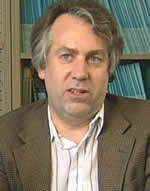 Is Global Warming Affecting Hurricanes?
Is Global Warming Affecting Hurricanes?
Professor Kerry Emanuel
Department of Atmospheric Science
Massachusetts Institute of Technology
Tuesday, April 22, 2008
8:00 pm, Sun Room, Memorial Union
Analysis of historical records of hurricane activity reveals large variability from one decade to the next. How much of this variability is random, how much can be said to be part of natural, regional or global climate fluctuations (such as El Nino), and how much is tied to man-made global climate change? These are important questions, as their answers bear on the pressing question of how hurricane activity might change over the next century. I will review the evidence that hurricane activity is closely linked to sea surface temperature and then examine the various environmental processes that cause sea surface temperature to change, focusing on the role of human-induced climate change.
